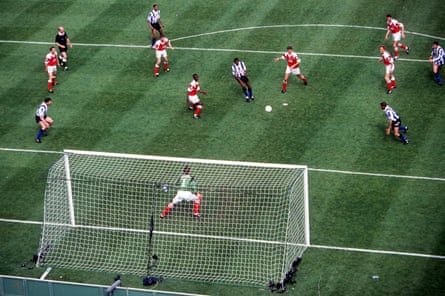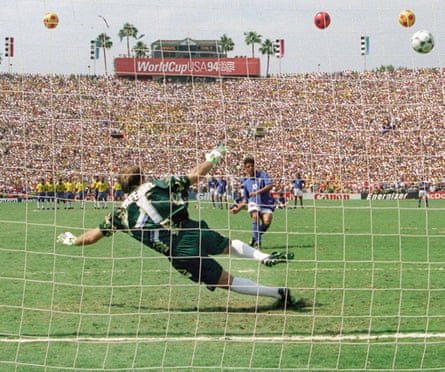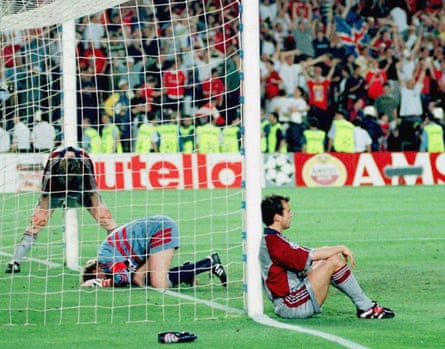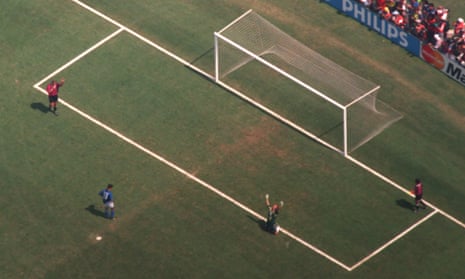As captain it was my job to go up and collect the cup. I was only 12 at the time but I still knew when I was being patronised. We hadn’t come close to winning the Eastleigh District League Cup final yet here I was being presented with the fair play award. This was no doubt dreamed up as some kind of consolation prize to ease the disappointment of defeat in a big game. Losing 8-0 was bad enough. If I needed consoling, it was after having to lift that thing in front of a congregation of parents, including my own.
Reaching a final gives you a day out and a medal but, when you’ve built up a runners-up collection like mine, you start considering semi-final defeat as a blessing in disguise, something you can forget about. Between 1991 and 2005 I played in six cup finals and didn’t win one of them. So I cringe when I hear pundits harping on about nobody remembering the losers in a cup final. The losers are all I tend to remember.
It’s possible my losing streak has tainted my perspective where cup finals are concerned. When Sheffield Wednesday lost both domestic cup finals in 1993 it was inevitable. Not just because I wanted them to win and have a habit of backing the losing team – but because my surname, Sanderson, was their shirt sponsor at the time. They hadn’t a hope.

Paranoia aside, the relevance of a final is often encapsulated better by the reaction of the losing team than the winning team. Take the 1994 World Cup final as an example. I’m drawn to images of Roberto Baggio – whose mercurial performances had earned his country a place in the final in the first place – standing motionless and alone in the vast expanse of the 18-yard box, looking utterly bereft after he had smashed his decisive penalty high over the crossbar.
That’s far a more memorable picture than victorious Brazil captain Dunga hoisting the trophy aloft while shouting at the critics who called his playing style boring. Brazil’s losing, albeit flamboyant, team of 1982 – who didn’t even make the final – are perhaps better remembered today than Dunga and his World Cup-winning colleagues.

Mind you, the 1994 World Cup final was the kind of tedious game that made a man looking sad seem exciting. Not like Manchester United’s win over Bayern Munich in the Champions League final in 1999, which was one of most dramatic in the competition’s history.
I will always associate that match with the sight of Bayern Munich players dropping to the ground at the final whistle, as if propelled by some supernatural force, shell-shocked at losing a match they had been winning as the clock ticked into the three minutes of injury time. In my eyes, the most striking post-match performance that night came from Bayern defender Samuel Kuffour, who could be seen beating his fist into the turf in a combination of rage and disbelief at his side’s late capitulation.

It’s not just the reactions of losers that live on in the memory. In some cases their performances have a greater legacy than the winners. Holland’s style of attacking football in the 1970s is still celebrated as groundbreaking, despite the fact they lost to West Germany in the 1974 final and to Argentina in the 1978 final.
The same can be said of the Hungary side of the 1950s, who are held in higher esteem than the West Germany team who beat them in the 1954 World Cup final in Switzerland – and this game is referred to as the Miracle of Bern given Hungary were such overwhelming favourites to win this final. Winning may be everything in cup finals, but silverware doesn’t guarantee you a place in people’s hearts and minds. Just because you lose a cup final doesn’t mean you are forgotten, even if in my case I wish I could be.

Comments (…)
Sign in or create your Guardian account to join the discussion